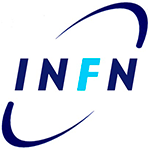Mr. Luca Maggio
Multi-parameter estimation of the state of two interfering photonic qubits
Achieving high-precision estimation of the polarization parameters of photonic qubits is key in both quantum sensing and quantum information processing. Multiphoton-photon interference serves as a powerful tool to achieve such a goal. However, current techniques are unable to retrieve the full photonic quantum metrology information to reach the ultimate precision in the estimation even for a single parameter [1]. Furthermore, they are unable to probe the relative phase of photonic qubits. We present a two-photon interfering technique enabling for the first time the estimation of multiple polarisation parameters associated with the photonic quantum states of two polarization qubits, including their relative phase, with the ultimate quantum sensitivity and within a relatively low number of experimental iterations [2]. In particular, our sensing protocol allows us to estimate simultaneously the polar angle of the two photons and the difference in their relative phase by polarisation-resolved sampling measurements. We evaluate its precision and accuracy by means of multiparameter quantum metrology [3]. Remarkably, we prove that the estimation reaches asymptotically the ultimate precision given by the Quantum Cramer-Rao bound for both parameters. Furthermore, we discuss the precision and accuracy in the non-asymptotic regime, showing that already for a number of sampling measurements of order 100 the sensing scheme approaches the ultimate precision for most of the values of the parameters we aim to estimate. Remarkably, our scheme allows for the first time the estimation of difference in relative phase of the polarisation of two photons with ultimate precision for arbitrary unknown values of the polar angle. These remarkable results at the interface between quantum metrology, quantum optical interference, and boson sampling can pave the way to a new platform of high-precision sensing techniques based on polarization measurements with ultimate quantum precision. It also lays the foundation for future schemes based on multi-parameter interferometry techniques for the estimation of polarisation parameters that involve more than two qubits in arbitrary quantum information networks for quantum communication and quantum information processing. [1] N. Harnchaiwat, F. Zhu, N. Westerberg, E. Gauger, and J. Leach, Opt. Express 28, 2210 (2020). [2] L. Maggio, D. Triggiani, P. Facchi,and V. Tamma, (2024), arXiv:2405.12870. [3] H. CRAMER, Mathematical Methods of Statistics (PMS-9) (Princeton University Press, 1999).





